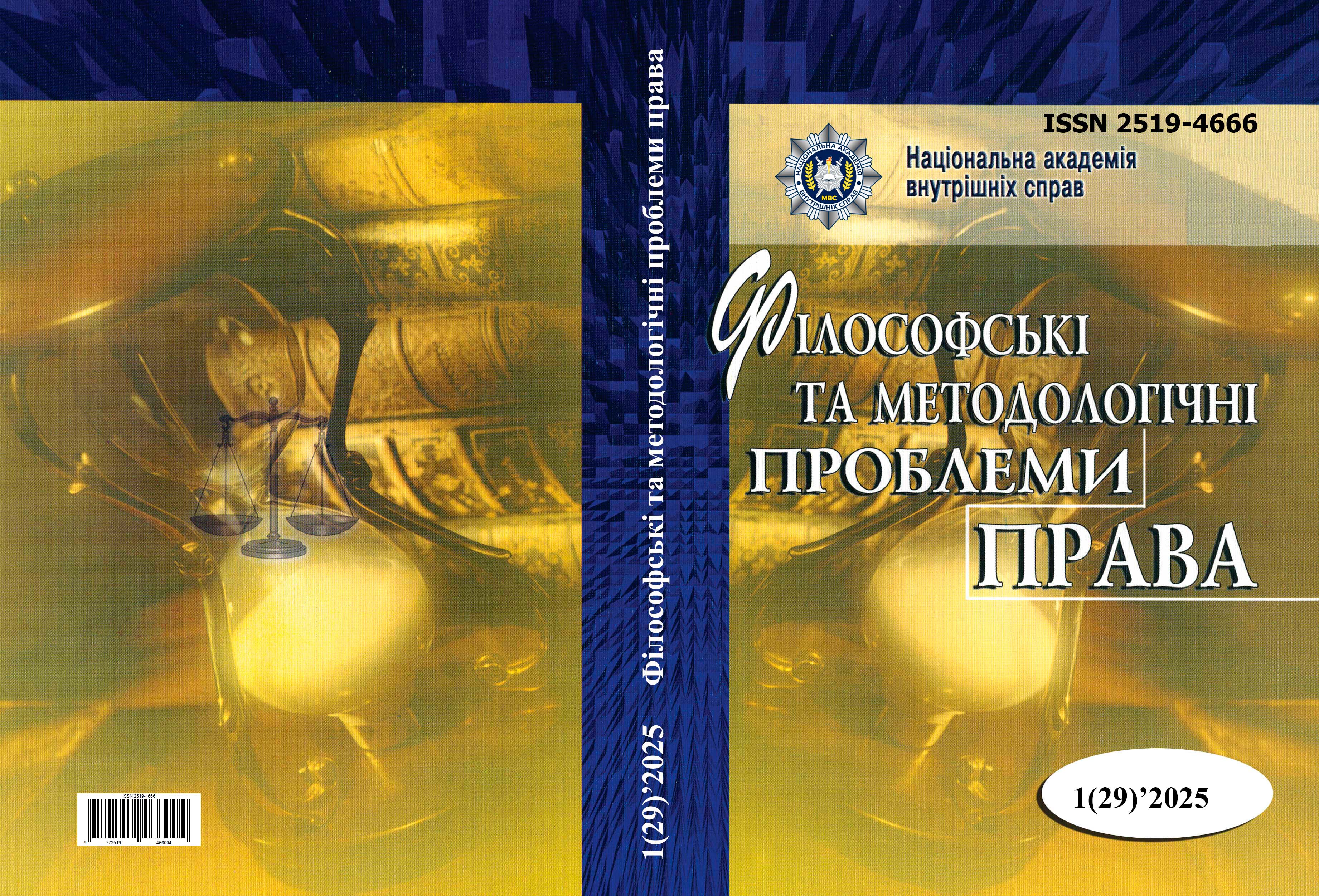Formation of the Institute of Amicus Curiae in International and National Law: Current Tendencies and Prospects for its Development in the Era of Artificial Intelligence
Abstract
Abstract. The relevance of the research on the formation of the institute of amicus curiae in international and national law, in particular, the impact of the rise of artificial intelligence on the formation of this institute in international and national law can hardly be overestimated, since it is due to the growing interest in amicus curiae briefs, the spread of artificial intelligence and its availability, which leads to the tendency of using this tool by an increasing number of lawyers from numerous countries of the world. The author touches upon the prerequisites for the emergence of the institute of amicus curiae, its early forms and each stage of its formation. The author analyses numerous cases, including Gaius Verres case, Darnel’s case, Calas Case, Marbury v. Madison case, Soering v United Kingdom case and many others, which have become important milestones in the development of the institute of amicus curiae. The author also outlines current tendencies in the use of amicus curiae briefs by courts, as well as the possibility of using artificial intelligence to generate amici curiae. The purpose of the research is to cover and analyse the formation of the institute of amicus curiae from its first forms to modern use. The material presented herein is of a certain scientific novelty, since the topic of the historical development of the institute of amicus curiae from its first forms to the analysis of the possibility of using artificial intelligence to generate such opinions is rarely studied, despite its exceptional relevance. The practical significance of the study lies in the fact that the author has proposed a new vision of the development of amicus curiae through the lens of its formation.
Keywords: amicus curiae; human rights; European Court of Human Rights; international law; justice; artificial intelligence.
Downloads
References
Baker, J.H. (2019). An Introduction to English Legal History. Oxford University Press.
Baum, L., & Devins, N. (2017). The Company They Keep: How Partisan Divisions Shape the Supreme Court. Oxford University Press.
Berry, D.H. (2020). Cicero's Catilinarians. New York: Oxford University Press. DOI: 10.1093/oso/9780195326468.001.0001
Binns, R. (2018). Fairness in Machine Learning: Lessons from Political Philosophy. Journal of Machine Learning Research, 2. DOI: 10.48550/arXiv.1712.03586
Black, R.C., Owens, R.J., Wedeking, J., & Wohlfarth, P.C. (2016). U.S. Supreme Court Opinions and Their Audiences. Cambridge University Press. DOI: 10.1017/CBO9781316480366
Cairns, J.W. (2015). Codification, Transplants and History: Law Reform in Louisiana and Beyond. Cambridge University Press.
Cath, C. (2018). Governing Artificial Intelligence: Ethical, Legal, and Technical Opportunities and Challenges. Philosophical Transactions of the Royal Society A, 376. DOI: 10.1098/rsta.2018.0080
Frier, B.W. (2018). The Rise of the Roman Jurists. Princeton University Press.
Gardbaum, S. (2020). The New Commonwealth Model of Constitutionalism: Theory and Practice. Cambridge University Press. DOI: 10.1017/CBO9780511920806
Garoupa, N., & Ginsburg, T. (2015). Judicial Reputation: A Comparative Theory. Chicago: University of Chicago Press. DOI: 10.7208/chicago/9780226290621.001.0001
Goldman, E. (2025). Court Denies Preliminary Injunction Against Minnesota's Anti-"Deepfakes" Law-Kohls v. Ellison. Technology & Marketing Law Blog. Retrieved from https://blog.ericgoldman.org/ archives/2025/01/court-denies-preliminary-injunction-against-minnesotas-anti-deepfakes-law-kohls-v-ellison.htm
Herzog, T. (2018). A Short History of European Law: The Last Two and a Half Millennia. Harvard University Press. DOI: 10.2307/j.ctv24trbnw
Jefferies, D. (2009). The Medieval Origins of the Legal Profession: Canonists, Civilians, and Courts. Parergon, 26(1), 205-207. DOI: 10.1353/pgn.0.0138
Johnston, D. (2022). Roman Law in Context (2nd, ed.). Cambridge University Press. DOI: 10.1017/97811085728713
Kuner, C., Bygrave, L.A., & Docksey, C. (2021). The EU General Data Protection Regulation (GDPR): A Commentary. Oxford University Press. DOI: 10.2139/ssrn.3839645
McCrudden, C. (2019). Litigating Religions: An Essay on Human Rights, Courts, and Beliefs. Oxford University Press. DOI: 10.1111/rirt.13849
Pasquale, F. (2020). New Laws of Robotics: Defending Human Expertise in the Age of AI. Harvard University Press.
Rainey, B., McCormick, P., & Ovey, C. (2021). Jacobs, White, and Ovey: The European Convention on Human Rights. Oxford University Press. Retrieved from https://www.oxfordlawtrove.com/view/ 10.1093/he/9780198847137.001.0001/he-9780198847137
Schauer, F. (2015). The Force of Law. Harvard University Press. Retrieved from https://biblioscout.net/content/pdf/99.140005/arsp202001013301.pdf
Smuha, N.A. (2021). From a "Race to AI" to a "Race to AI Regulation": Regulatory Competition for Artificial Intelligence. Law, Innovation and Technology, 13(1), 57-84. DOI: 10.2139/ssrn.3501410
Surden, H. (2019). Artificial Intelligence and Law: An Overview. Georgia Law Review, 35. Retrieved from https://ssrn.com/abstract=3411869
Tamanaha, B.Z. (2017). A Realistic Theory of Law. Cambridge University Press. DOI: 10.1017/9781316979778
Tuori, K. (2016). The Emperor of Law: The Emergence of Roman Imperial Adjudication. Oxford University Press. DOI: 10.1093/acprof:oso/9780198744450.001.0001
Abstract views: 102 PDF Downloads: 89
Copyright (c) 2025 Philosophical and Methodological Problems of Law

This work is licensed under a Creative Commons Attribution-NonCommercial-NoDerivatives 4.0 International License.
- Authors reserve the right to authorship of their own work and transfer to the magazine the right of the first publication of this work under the terms of the Creative Commons Attribution License, which allows other persons to freely distribute published work with mandatory reference to authors of the original work and the first publication of an article in this magazine.
- Authors have the right to enter into separate additional agreements on non-exclusive dissemination of the work in the form in which it was published in the journal (for example, to post an article in the institution's repository or to publish as part of a monograph), provided that the link to the first publication of the work in this journal is maintained.
- The journal's policy allows and encourages the posting of articles by authors on the Internet (for example, in electronic storehouses of institutions or on personal websites), both before the submission of this manuscript to the editorial office and during its editorial processing, as this contributes to the creation of a productive scientific discussion and positively affects the efficiency and dynamics of citing the published work.




